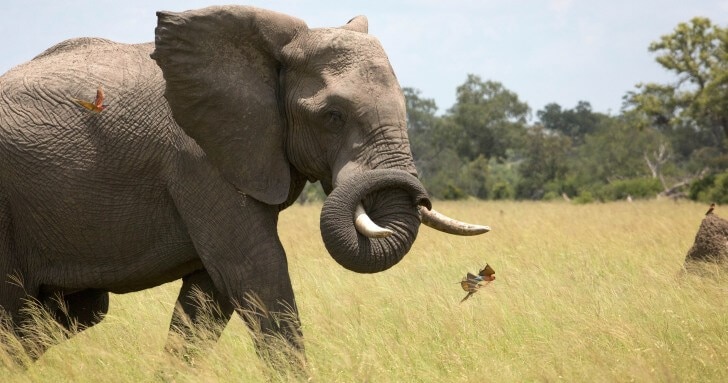BBC Earth newsletter
BBC Earth delivered direct to your inbox
Sign up to receive news, updates and exclusives from BBC Earth and related content from BBC Studios by email.
Planet Earth II
The power of nature is greater than we ever imagined.
You see his little feet paddling, his head bobbing through the water, the music swells, will our sloth Romeo find his one true love?
Now tell us you’re not smiling!
A new study from the University of California, Berkeley and the BBC Worldwide Global Insight Team has found that watching natural history content, for even just a few minutes, can increase your feelings of happiness and reduce stress.
These results backup the findings of previous scientific studies into the benefits of engaging with the natural world as well as long-held cultural beliefs that nature is good for the mind and body.
Mike Gunton, Executive Producer of Planet Earth II, was excited to see people connecting with Planet Earth II on an emotional level.
“It’s thrilling to see how this can generate such positive emotions and have a powerful impact on our viewer’s mood and wellbeing,” he says.

In total, 7500 respondents from across the US, UK, India, Australia, South Africa and Singapore took part in the detailed online study. Each participant was randomly assigned one of five clips – either a scene from Planet Earth II (the swimming sloth or the extended trailer), a collection of news stories from US television networks, a scene from a major drama series, or, as a control, an excerpt from an instructional DIY video.
Participants were asked a series of questions to chart their emotions and stress levels before and after watching one of five clips. They also underwent facial mapping to analyse changes in their facial expressions while watching the videos. Using their device’s webcam, their ‘micro facial expressions’ were mapped to quantify the extent each viewer was feeling one of six emotions – happiness, surprise, puzzlement, fear, anger and rejection.
The results showed watching footage from Planet Earth II resulted in significant increases in feelings of awe, contentedness, joy, amusement and curiosity as well as a reduction in feelings of tiredness, anger and stress; while facial mapping data revealed high levels of ‘happy’ on the faces of those watching natural history clips.
Professor Dacher Keltner of the University of California, Berkeley, says the shifts in emotion demonstrated in the study are significant as wonder and contentment are the foundations of human happiness.
“If people experience feelings of awe, they are more likely to display empathetic and charitable behaviours and have been shown to be better able to handle stress,” he adds. For younger viewers the affects were even more pronounced, with participants in the 16-24 age group more likely to experience significant positive sifts in emotion following the consumption of natural history content.

Belief in the positive effects of nature has been a part of cultures around the world for centuries seen in everything from indigenous rites of passage, “forest bathing” in South Korea and Japan to the musings and creations of philosophers and artists, but it is only recently that scientific papers have started to document the benefits of being outdoors and viewing nature. As we learn increasingly more about the positive benefits of engaging with nature, researchers are beginning to ask how nature is having this effect on us.
While the literature is new, science is pointing to several possible explanations. One study into “neuroaesthetics” suggests that viewing natural beauty (usually in the form of landscapes) activates specific reward circuits in the brain while another showed immersion in nature caused a reduction our body’s physical stress response resulting in lower levels of fear and anxiety. Additionally, numerous studies show that viewing nature is a primary source of awe – an emotion known to have a variety of benefits from promoting well-being and altruism to creating a sense of humility.